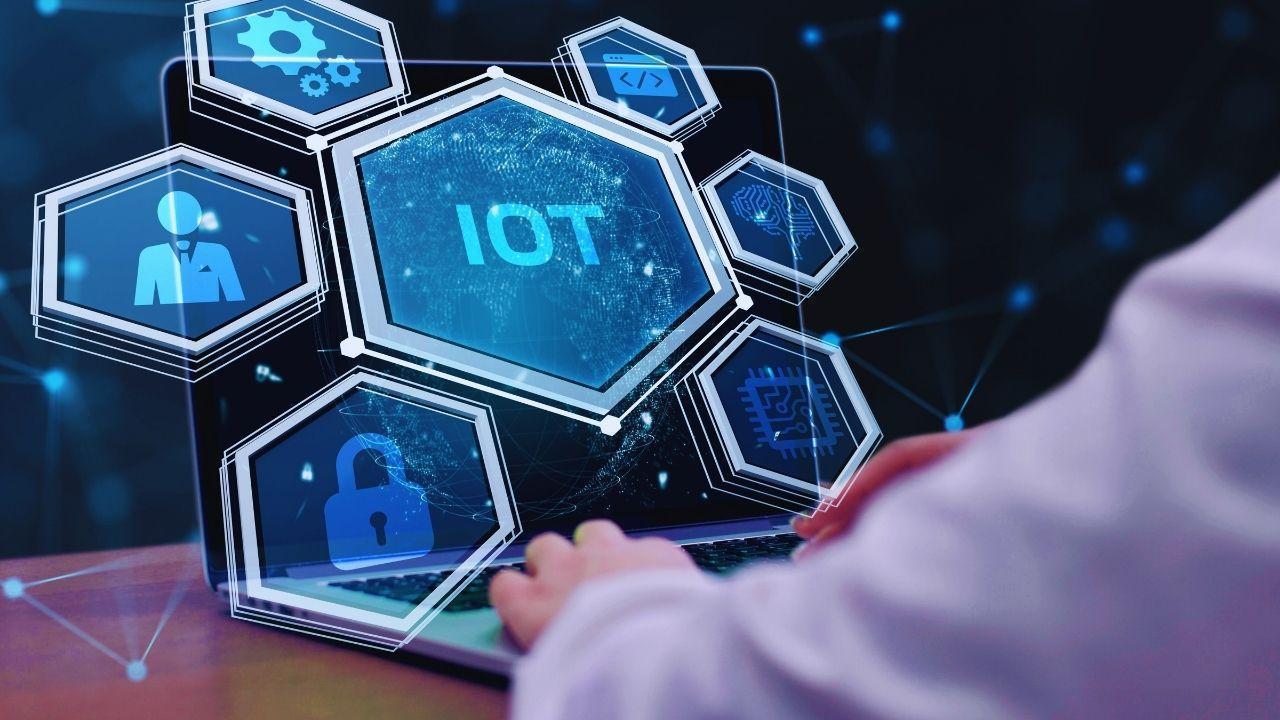You have not yet added any article to your bookmarks!

Join 10k+ people to get notified about new posts, news and tips.
Do not worry we don't spam!

Post by : Anis Farhan
Smart homes, integrated with Internet of Things (IoT) technology, are no longer a futuristic concept—they are becoming a reality in households worldwide. IoT connects everyday devices to the internet, allowing them to communicate, automate tasks, and respond intelligently to user needs. This connectivity transforms domestic life by enhancing convenience, comfort, energy efficiency, and security.
The increasing affordability of smart devices, improved connectivity, and rising consumer awareness have fueled this trend. Homeowners can now control lighting, climate, entertainment systems, appliances, and security features from smartphones or voice assistants, making daily routines more streamlined and efficient.
In urban areas, smart homes are increasingly popular due to fast-paced lifestyles, where automation saves time, reduces effort, and provides peace of mind. The combination of IoT, AI, and smart devices is redefining domestic living, creating homes that are adaptive, responsive, and intelligent.
Smart devices offer a wide range of functionalities designed to simplify life. Lighting systems, for example, can automatically adjust brightness or color temperature based on time of day or activity. Smart thermostats learn household patterns and optimize temperature settings, reducing energy consumption while maintaining comfort.
Voice assistants such as Alexa, Google Assistant, and Siri allow users to control devices, set reminders, play music, or check information hands-free. Smart kitchen appliances can schedule cooking, track groceries, and even suggest recipes based on available ingredients.
Entertainment systems have also evolved with IoT. Smart TVs, speakers, and streaming devices can integrate with home networks, providing personalized content, multi-room audio, and seamless media experiences. These technologies collectively reduce manual effort, improve efficiency, and make homes more responsive to individual preferences.
One of the most significant benefits of smart homes is energy efficiency. IoT-enabled devices monitor and optimize energy usage, allowing homeowners to reduce electricity bills while minimizing environmental impact.
Smart plugs and switches control appliances remotely, ensuring that devices are turned off when not in use. Energy monitoring systems track consumption patterns and provide insights for better energy management. Smart lighting and thermostats adjust automatically based on occupancy, natural light, and weather conditions, reducing waste.
Homeowners increasingly prioritize sustainability, and smart homes facilitate eco-friendly practices. Solar energy integration, battery storage, and energy-efficient appliances combined with smart monitoring contribute to greener lifestyles, reducing the carbon footprint of households.
IoT has transformed home security by integrating sensors, cameras, and alarms into intelligent systems. Smart security cameras, door locks, and motion detectors provide real-time alerts to homeowners via mobile apps.
Features such as facial recognition, remote access, and automated locking ensure that homes are secure even when residents are away. Smart doorbells allow users to interact with visitors remotely, while sensors detect unusual activity, fire, or water leaks, preventing damage and loss.
Connected security systems also enable neighborhood-level monitoring and integration with emergency services, enhancing overall safety. By providing constant awareness and control, smart home security systems deliver peace of mind to families.
IoT devices extend beyond convenience to support health and wellbeing. Smart air purifiers, humidifiers, and climate control systems monitor indoor air quality and maintain optimal environmental conditions.
Wearables and fitness devices can sync with smart home systems to track activity, sleep, and overall health. Homes can be programmed to adjust lighting or temperature based on health requirements or sleep schedules, supporting wellness routines.
Kitchen devices assist in healthy cooking by suggesting balanced recipes or controlling portion sizes. By integrating health-oriented technology, smart homes contribute to improved lifestyle habits and proactive wellbeing management.
Smart homes also address the needs of elderly residents and people with disabilities. Voice-controlled devices, automated lighting, and smart appliances reduce physical effort and make daily activities more manageable.
Fall detection systems, emergency alerts, and medication reminders ensure that older adults maintain independence while receiving support in real-time. Smart homes create safer, more inclusive environments, allowing residents to live comfortably without constant supervision.
By focusing on accessibility, IoT-enabled homes promote dignity, autonomy, and quality of life for all members of the household.
A key challenge in smart homes is device interoperability. Homeowners often use devices from different manufacturers, which may not seamlessly communicate. Platforms that integrate multiple devices into a single interface, such as smart hubs or unified apps, improve usability and simplify management.
IoT ecosystems now support cross-platform integration, allowing devices to work together intelligently. For example, a smart thermostat can interact with lighting and window sensors to optimize energy usage, while security systems can coordinate with smart cameras and alarms for enhanced safety.
This interoperability ensures that the full potential of smart homes is realized, creating a cohesive and responsive domestic environment.
While smart homes offer numerous advantages, they also raise concerns regarding data privacy and cybersecurity. Connected devices collect significant amounts of personal information, including usage patterns, location, and habits.
Hackers can exploit vulnerabilities to gain unauthorized access, compromising security and privacy. Homeowners must ensure devices have strong authentication, firmware updates, and encrypted communication to protect against cyber threats.
Regulations and standards for IoT security are evolving globally, emphasizing the need for manufacturers and consumers to prioritize secure devices and responsible data handling practices. Awareness and proactive management are essential to mitigate risks while enjoying the benefits of smart homes.
The smart home market is expanding rapidly, driven by technological advancement and consumer demand. Market research predicts significant growth in IoT device adoption, from smart lighting and thermostats to home assistants and security solutions.
This growth generates business opportunities for technology firms, startups, and service providers. Companies offering installation, maintenance, and integration services also benefit from increased consumer interest. The expansion of the smart home ecosystem contributes to economic development, job creation, and innovation in related sectors.
As adoption increases, competition will drive innovation, affordability, and improved quality, further accelerating smart home penetration across urban and semi-urban households.
The future of smart homes is intertwined with artificial intelligence (AI). AI-powered systems will learn user behaviors, anticipate needs, and automate decisions, creating predictive homes.
For instance, AI could optimize energy consumption based on weather forecasts, daily routines, and utility costs. Smart kitchens may suggest meals based on dietary preferences and ingredient availability, while predictive security systems anticipate risks and respond proactively.
Integration with voice and gesture control, as well as advanced sensors, will make homes more intuitive and human-centric. The convergence of IoT, AI, and robotics will redefine domestic life, making homes more adaptive, personalized, and efficient.
Smart homes are reshaping social interactions, family routines, and lifestyle choices. Automated systems free up time, enabling families to focus on shared activities, hobbies, and personal development.
Connected devices facilitate remote monitoring and communication, enhancing relationships even across distances. Lifestyle choices, such as energy conservation, sustainable cooking, and health monitoring, are increasingly supported by technology.
Smart homes also influence urban planning and community development, as neighborhoods adopt connected infrastructures and shared resources, contributing to broader societal benefits.
Smart homes and IoT are transforming domestic life, offering convenience, efficiency, security, and wellness. From automated lighting and climate control to intelligent security and health integration, connected devices create homes that adapt to human needs and preferences.
The rise of smart homes is driven by technological advancement, affordability, and lifestyle shifts. While data privacy and interoperability challenges exist, the benefits are reshaping the way people live, interact, and manage their households.
As AI and predictive technologies integrate with IoT, homes will become increasingly responsive and intelligent, fostering comfort, sustainability, and wellbeing. The smart home revolution is not just about technology—it is about enhancing the quality of life, making domestic spaces more connected, adaptive, and human-centric.
This article is intended for informational and educational purposes. It discusses trends and applications of smart home technology and IoT in domestic life. Readers should evaluate devices and solutions carefully, considering privacy, security, and compatibility before adoption.










Thai AirAsia Targets Growth Through China & Long-Haul Routes
Thai AirAsia aims 6-9% revenue growth in 2026 expanding domestic flights and new international route

India Ends Silent Observer Role Emerges Key Player in West Asia
From passive energy buyer to strategic partner India’s diplomacy in West Asia now commands trust inf

Indian Students Stuck In Iran Amid US-Iran Tensions And Exam Worries
Rising US-Iran tensions leave Indian students stranded, fearing missed exams could delay graduation

India Says J&K Budget Exceeds Pakistan’s IMF Bailout
India slammed Pakistan at UNHRC, stating J&K’s development budget exceeds Pakistan’s IMF bailout and

UP CM Holds Talks With Ex Japan Economy Minister in Tokyo
Yogi Adityanath met former Japan economy minister Nishimura Yasutoshi in Tokyo to boost UP-Japan coo

Hiroshima Teacher Arrested for Alleged Sexual Assault of Minor
A 37-year-old high school teacher in Hiroshima was arrested on suspicion of sexually assaulting a te